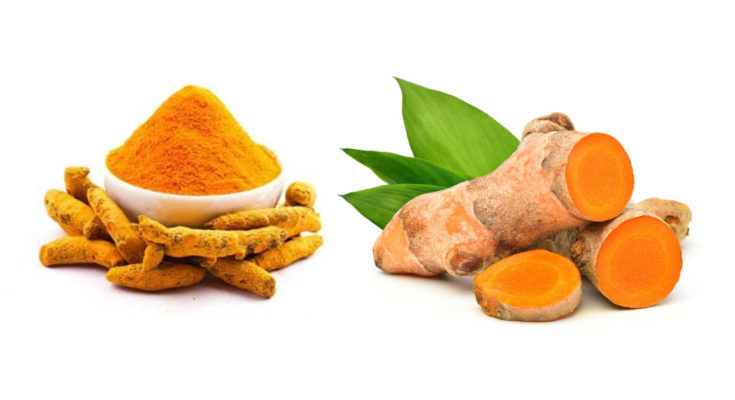Haldi, also known as turmeric, is a spice commonly used in Indian cuisine and traditional medicine. It comes from the root of the Curcuma longa plant, which is native to Southeast Asia.
Turmeric has a bright yellow color and a warm, slightly bitter taste. It is commonly used as a spice in curries, but it is also used as a natural food coloring and a preservative.
In traditional medicine, turmeric has been used for thousands of years to treat a variety of ailments. It is believed to have anti-inflammatory and antioxidant properties, and it has been used to treat conditions such as arthritis, digestive problems, and skin disorders.
Recent scientific studies have also suggested that turmeric may have potential health benefits, such as reducing inflammation, improving brain function, and lowering the risk of heart disease and cancer. However, more research is needed to fully understand the health effects of turmeric and its active compound, curcumin.
HOW TO USE TURMERIC:-
Turmeric (haldi) can be used in many ways, both as a spice in cooking and as a natural remedy. Here are some common ways to use turmeric:
1. As a spice in cooking: Turmeric is commonly used in Indian and Middle Eastern cuisine as a spice in curries, rice dishes, soups, and stews. It can also be added to marinades, salad dressings, and smoothies.
2. As a tea: Turmeric tea can be made by simmering 1 teaspoon of turmeric in 2 cups of water for 10-15 minutes. You can add honey, ginger, or lemon to taste.
3. In smoothies: You can add 1 teaspoon of turmeric to your favorite smoothie recipe for added flavor and health benefits.
4. In capsules: Turmeric capsules are available in health food stores and online. The recommended dose is usually 500-2,000 mg per day.
5. As a face mask: Turmeric can be mixed with honey, yogurt, or coconut oil to create a natural face mask. Apply the mixture to your face and leave on for 10-15 minutes before rinsing off.
It’s important to note that turmeric can stain clothing and surfaces, so be careful when using it in cooking or as a face mask. Additionally, if you are pregnant or taking medication, it’s always a good idea to consult with your doctor before adding turmeric to your diet.
HEALTH BENEFITS:-
Turmeric is a popular spice commonly used in Asian cuisine and traditional medicine. It has been studied for its potential health benefits, and some of the advantages of turmeric include:
1. Anti-inflammatory properties: Turmeric contains compounds called curcuminoids, which have potent anti-inflammatory effects. Chronic inflammation is associated with many health problems, including arthritis, heart disease, and cancer.
2. Antioxidant effects: Turmeric is also a potent antioxidant, meaning it helps protect your cells from damage caused by free radicals. This may help reduce the risk of chronic diseases such as cancer and heart disease.
3. Pain relief: Turmeric has been used traditionally to relieve pain and inflammation. Studies suggest that it may be effective in reducing pain associated with osteoarthritis and other conditions.
4. Improved brain function: Curcumin, the main active ingredient in turmeric, has been found to increase levels of a brain hormone called Brain-Derived Neurotrophic Factor (BDNF). This hormone is essential for the growth and survival of neurons and has been linked to improved brain function and a lower risk of brain diseases such as Alzheimer’s.
5. Improved digestion: Turmeric has been used in traditional medicine to improve digestion and reduce symptoms of digestive disorders. It may help stimulate the production of digestive enzymes and reduce inflammation in the digestive tract.
6. Lower risk of heart disease: Studies have shown that turmeric may help lower cholesterol levels, reduce inflammation, and improve blood vessel function, all of which may help reduce the risk of heart disease.
7. Potential cancer-fighting properties: Some studies have suggested that curcumin may have anticancer effects, including the ability to inhibit the growth of cancer cells and prevent the formation of new blood vessels that can feed cancer tumors.
It is important to note that many of these benefits are based on laboratory and animal studies, and more research is needed to confirm the effects of turmeric on human health.
NUTRITIONAL FACTS OF TURMERIC:-
Turmeric is a spice commonly used in cooking and is known for its bright yellow color. It also has several potential health benefits due to its active ingredient curcumin.
Here are the nutritional facts of 1 tablespoon (6.8g) of ground turmeric:
- Calories: 24
- Protein: 0.9g
- Fat: 0.7g
- Carbohydrates: 4.3g
- Fiber: 2g
- Sugar: 0.2g. Turmeric is also a good source of minerals, including:
- Iron: 10% of the Daily Value (DV)
- Manganese: 26% of the DV
- Potassium: 3% of the DV
It is important to note that while turmeric has some nutritional value, the potential health benefits come from its active ingredient curcumin, which is present in smaller quantities in turmeric. To obtain the potential health benefits of curcumin, higher doses may be needed than what can be obtained through dietary intake alone



